中华人民共和国劳动法(2018修正)(中英文对照版)
1994年7月5日第八届全国人民代表大会常务委员会第八次会议通过 根据2009年8月27日第十一届全国人民代表大会常务委员会第十次会议《关于修改部分法律的决定》第一次修正 根据2018年12月29日第十三届全国人民代表大会常务委员会第七次会议《关于修改〈中华人民共和国劳动法〉等七部法律的决定》第二次修正
法律文本
中华人民共和国劳动法(2018修正)
Labor Law of the People’s Republic of China (2018 Revision)
(1994年7月5日第八届全国人民代表大会常务委员会第八次会议通过 根据2009年8月27日第十一届全国人民代表大会常务委员会第十次会议《关于修改部分法律的决定》第一次修正 根据2018年12月29日第十三届全国人民代表大会常务委员会第七次会议《关于修改〈中华人民共和国劳动法〉等七部法律的决定》第二次修正)
(Adopted at the 8th session of the Standing Committee of the 8th National People's Congress on July 5, 1994; amended for the first time according to the Decision on Amending Certain Laws passed at the 10th session of the Standing Committee of the 11th National People's Congress on August 27, 2009; and amended for the second time according to the Decision on Revising Seven Laws including the Labor Law of the People's Republic of China passed at the 7th session of the Standing Committee of the 13th National People's Congress on December 29, 2018)
第一章 总 则
Chapter 1 General Provisions
第一条 为了保护劳动者的合法权益,调整劳动关系,建立和维护适应社会主义市场经济的劳动制度,促进经济发展和社会进步,根据宪法,制定本法。
Article 1 This Law is formulated in accordance with the Constitution in order to protect the lawful rights and interests of workers, adjust labor relations, establish and maintain a labor system suited to the socialist market economy, and promote economic development and social progress.
第二条 在中华人民共和国境内的企业、个体经济组织(以下统称用人单位)和与之形成劳动关系的劳动者,适用本法。
Article 2 This Law shall apply to all enterprises and individual economic organizations (hereinafter referred to as employing units) within the territory of the People's Republic of China and the laborers who form a labor relationship therewith.
国家机关、事业组织、社会团体和与之建立劳动合同关系的劳动者,依照本法执行。
State organs, institutions and public organizations as well as labourers who form a labour contract relationship therewith shall be bound by this Law.
第三条 劳动者享有平等就业和选择职业的权利、取得劳动报酬的权利、休息休假的权利、获得劳动安全卫生保护的权利、接受职业技能培训的权利、享受社会保险和福利的权利、提请劳动争议处理的权利以及法律规定的其他劳动权利。
Article 3 Workers shall be entitled to equal employment and choice of occupation, labor remuneration, rest and vacation, labor safety and health protection, occupational skills training, social insurance and welfare, submission of labor dispute for settlement and other labor rights stipulated by law.
劳动者应当完成劳动任务,提高职业技能,执行劳动安全卫生规程,遵守劳动纪律和职业道德。
Labourers shall fulfill their labour tasks, improve their vocational skills, follow rules on occupational safety and health, and observe labour discipline and professional ethics.
第四条 用人单位应当依法建立和完善规章制度,保障劳动者享有劳动权利和履行劳动义务。
Article 4 Employers shall establish and improve upon their rules and systems pursuant to the law, ensure that workers enjoy labour rights and perform labour obligations.
第五条 国家采取各种措施,促进劳动就业,发展职业教育,制定劳动标准,调节社会收入,完善社会保险,协调劳动关系,逐步提高劳动者的生活水平。
Article 5 The State shall take various measures to promote employment, develop vocational education, lay down labour standards, regulate social incomes, perfect social insurance system, coordinate labour relationship and gradually raise the living standard of labourers.
第六条 国家提倡劳动者参加社会义务劳动,开展劳动竞赛和合理化建议活动,鼓励和保护劳动者进行科学研究、技术革新和发明创造,表彰和奖励劳动模范和先进工作者。
Article 6 The State shall advocate the participation of labourers in social voluntary labour and the unfolding of labour emulation and rational proposal campaign, encourage and protect labourers in scientific research, technological innovation and invention and creation, and commend and reward model and advanced workers.
第七条 劳动者有权依法参加和组织工会。
Article 7 Employees shall have the right to join trade unions in accordance with the law.
工会代表和维护劳动者的合法权益,依法独立自主地开展活动。
Trade unions shall represent and safeguard the legitimate rights and interests of workers, and carry out their activities independently pursuant to the law.
第八条 劳动者依照法律规定,通过职工大会、职工代表大会或者其他形式,参与民主管理或者就保护劳动者合法权益与用人单位进行平等协商。
Article 8 Laborers shall, through the assembly of staff and workers or their congress, or other forms in accordance with the provisions of laws, take part in democratic management or consult with the employing units on an equal footing about protection of the legitimate rights and interests of laborers.
第九条 国务院劳动行政部门主管全国劳动工作。
Article 9 The labour administration department of the State Council shall be responsible for labour work nationwide.
县级以上地方人民政府劳动行政部门主管本行政区域内的劳动工作。
The labour administration authorities of local People's Governments of county level and above shall be responsible for labour work within their administrative region.
第二章 促进就业
Chapter 2 Promotion of Employment
第十条 国家通过促进经济和社会发展,创造就业条件,扩大就业机会。
Article 10 The State shall create employment conditions and expand employment opportunities by promoting economic and social development.
国家鼓励企业、事业组织、社会团体在法律、行政法规规定的范围内兴办产业或者拓展经营,增加就业。
The State shall encourage enterprises, institutions and social groups to initiate industries or expand businesses for the increase of employment within the scope provided by the laws and administrative regulations.
国家支持劳动者自愿组织起来就业和从事个体经营实现就业。
The State shall support workers to get jobs by organizing themselves on a voluntary basis or by engaging in individual businesses.
第十一条 地方各级人民政府应当采取措施,发展多种类型的职业介绍机构,提供就业服务。
Article 11 The local people's governments at all levels shall take measures to develop various types of employment agencies and provide employment services.
第十二条 劳动者就业,不因民族、种族、性别、宗教信仰不同而受歧视。
Article 12 Laborers shall not be discriminated against in employment, regardless of their ethnic group, race, sex, or religious belief.
第十三条 妇女享有与男子平等的就业权利。在录用职工时,除国家规定的不适合妇女的工种或者岗位外,不得以性别为由拒绝录用妇女或者提高对妇女的录用标准。
Article 13 Women shall enjoy equal employment rights to men. With exception of the special types of work or post unsuitable to women as prescribed by the State, no unit may, in employing staff and workers, refuse to employ women by reason of sex or raise the employment standards for women.
第十四条 残疾人、少数民族人员、退出现役的军人的就业,法律、法规有特别规定的,从其规定。
Article 14 Where there are special stipulations in laws, rules and regulations on the employment of the disabled, the personnel of minority nationalities, and demobilized armymen, such stipulations shall apply.
第十五条 禁止用人单位招用未满十六周岁的未成年人。
Article 15 No employing units shall be allowed to recruit juveniles under the age of 16.
文艺、体育和特种工艺单位招用未满十六周岁的未成年人,必须遵守国家有关规定,并保障其接受义务教育的权利。
Units of literature and art, physical culture and sport, and special arts and crafts that recruit minors under the age of 16 must abide by the relevant regulations of the State and guarantee their right to compulsory education.
第三章 劳动合同和集体合同
Chapter III Labor Contracts and Collective Contracts
第十六条 劳动合同是劳动者与用人单位确立劳动关系、明确双方权利和义务的协议。
Article 16 A labor contract is an agreement that establishes the labor relationship between a laborer and an employer and specifies the rights and obligations of both parties.
建立劳动关系应当订立劳动合同。
A labor contract shall be concluded where a labor relationship is to be established.
第十七条 订立和变更劳动合同,应当遵循平等自愿、协商一致的原则,不得违反法律、行政法规的规定。
Article 17 Conclusion and modification of a labor contract shall follow the principles of equality, voluntariness and agreement through consultation, and shall not run counter to the stipulations of laws, administrative rules and regulations.
劳动合同依法订立即具有法律约束力,当事人必须履行劳动合同规定的义务。
Once a labor contract is concluded, it shall be legally binding and the parties shall perform their respective obligations as stipulated in the labor contract.
第十八条 下列劳动合同无效:
Article 18 The following labor contracts shall be invalid:
(一)违反法律、行政法规的劳动合同;
1. Labor contracts in violation of laws and administrative regulations; and
(二)采取欺诈、威胁等手段订立的劳动合同。
(II) Labor contracts concluded by means of fraud or intimidation, etc.
无效的劳动合同,从订立的时候起,就没有法律约束力。确认劳动合同部分无效的,如果不影响其余部分的效力,其余部分仍然有效。
An invalid labor contract is not legally binding from the time it is concluded. If a labor contract is partially invalid and the validity of the remaining part is not affected, the remaining part shall remain valid.
劳动合同的无效,由劳动争议仲裁委员会或者人民法院确认。
The invalidity of a labor contract shall be confirmed by a labor dispute arbitration committee or a people's court.
第十九条 劳动合同应当以书面形式订立,并具备以下条款:
Article 19 A labor contract shall be concluded in written form and shall include the following clauses:
(一)劳动合同期限;
1. Term of the labor contract;
(二)工作内容;
(II) Job description;
(三)劳动保护和劳动条件;
(III) Labor protection and working conditions;
(四)劳动报酬;
(IV) Labor remuneration;
(五)劳动纪律;
(V) Labor disciplines;
(六)劳动合同终止的条件;
(VI) Conditions for the termination of the labor contract; and
(七)违反劳动合同的责任。
(VII) Liabilities for breach of the labor contract.
劳动合同除前款规定的必备条款外,当事人可以协商约定其他内容。
Apart from the required clauses specified in the preceding paragraph, a labor contract may contain other clauses agreed upon by the parties through consultation.
第二十条 劳动合同的期限分为有固定期限、无固定期限和以完成一定的工作为期限。
Article 20 The term of a labor contract shall be divided into fixed term, flexible term or taking the completion of a specific amount of work as a term.
劳动者在同一用人单位连续工作满十年以上,当事人双方同意续延劳动合同的,如果劳动者提出订立无固定期限的劳动合同,应当订立无固定期限的劳动合同。
Where a labourer has worked in the same employing unit for ten consecutive years or more and both parties agree to extend the labour contract, if the labourer requests the conclusion of a labour contract with a non-fixed term, a labour contract with a non-fixed term shall be concluded.
第二十一条 劳动合同可以约定试用期。试用期最长不得超过六个月。
Article 21 A probation may be agreed upon in a labor contract. The longest probation period shall not exceed 6 months.
第二十二条 劳动合同当事人可以在劳动合同中约定保守用人单位商业秘密的有关事项。
Article 22 The parties to a labor contract may stipulate in the labor contract matters concerning keeping business secrets of the employing entity.
第二十三条 劳动合同期满或者当事人约定的劳动合同终止条件出现,劳动合同即行终止。
Article 23. A labour contract shall be promptly terminated on the expiry of its term of duration or when conditions occur for termination of the labour contract as agreed by the parties concerned.
第二十四条 经劳动合同当事人协商一致,劳动合同可以解除。
Article 24 A labor contract may be cancelled by the agreement of both parties.
第二十五条 劳动者有下列情形之一的,用人单位可以解除劳动合同:
Article 25 An Employer may terminate the labor contract if the employee:
(一)在试用期间被证明不符合录用条件的;
1. Having been proved not up to the requirements for recruitment during the probation period;
(二)严重违反劳动纪律或者用人单位规章制度的;
2. having seriously violated the labor disciplines or the rules and regulations of the employing entity;
(三)严重失职,营私舞弊,对用人单位利益造成重大损害的;
3. Having caused great losses to the employing unit through gross neglect of duty or malpractice for personal gains;
(四)被依法追究刑事责任的。
(IV) Having been investigated for criminal responsibility in accordance with the law.
第二十六条 有下列情形之一的,用人单位可以解除劳动合同,但是应当提前三十日以书面形式通知劳动者本人:
Article 26 In any of the following circumstances, the employing entity may cancel the labor contract, however, a written notice shall be given to the laborer 30 days in advance:
(一)劳动者患病或者非因工负伤,医疗期满后,不能从事原工作也不能从事由用人单位另行安排的工作的;
1. The laborer suffers any disease or non-work-related injury, and is unable to undertake his/her original work or any other work as arranged by the employing entity;
(二)劳动者不能胜任工作,经过培训或者调整工作岗位,仍不能胜任工作的;
(II) The employee is incompetent for his position, and remains so after training or being assigned to another position;
(三)劳动合同订立时所依据的客观情况发生重大变化,致使原劳动合同无法履行,经当事人协商不能就变更劳动合同达成协议的。
(III) The objective conditions taken as the basis for the conclusion of the labor contract have changed so greatly that the original labor contract cannot be performed, and no agreement on modification of the labor contract can be reached through consultation by the parties.
第二十七条 用人单位濒临破产进行法定整顿期间或者生产经营状况发生严重困难,确需裁减人员的,应当提前三十日向工会或者全体职工说明情况,听取工会或者职工的意见,经向劳动行政部门报告后,可以裁减人员。
Article 27 Where it is really necessary for an employing unit to cut down the number of workforce when it comes to the brink of bankruptcy and undergoes a statutory consolidation or runs deep into difficulties in production and management, the employing unit shall explain the situation to the trade union or all of its staff and workers 30 days in advance, solicit opinions from them and report to the administrative department of labor before it may cut down the number of workforce.
用人单位依据本条规定裁减人员,在六个月内录用人员的,应当优先录用被裁减的人员。
Where an employer unit has retrenched staff in accordance with the provisions of this Article and recruits workers within six (6) months, those retrenched staff must have priority in recruitment.
第二十八条 用人单位依据本法第二十四条、第二十六条、第二十七条的规定解除劳动合同的,应当依照国家有关规定给予经济补偿。
Article 28 If an employer unit cancels a labour contract in accordance with the provisions of Articles 24, 26 and 27 of this Law, economic compensation shall be provided pursuant to relevant State regulations.
第二十九条 劳动者有下列情形之一的,用人单位不得依据本法第二十六条、第二十七条的规定解除劳动合同:
Article 29 An Employer shall not cancel a labor contract under Articles 26 and 27 hereof if the employee:
(一)患职业病或者因工负伤并被确认丧失或者部分丧失劳动能力的;
1. has contracted an occupational disease or suffered a work-related injury and has been confirmed as having totally or partially lost the ability to work;
(二)患病或者负伤,在规定的医疗期内的;
2. The laborer is ill or injured and is under medical treatment;
(三)女职工在孕期、产期、哺乳期内的;
(III) Being a female employee during her pregnant, puerperal, or breast-feeding period;
(四)法律、行政法规规定的其他情形。
(IV) Other circumstances prescribed in laws and administrative regulations.
第三十条 用人单位解除劳动合同,工会认为不适当的,有权提出意见。如果用人单位违反法律、法规或者劳动合同,工会有权要求重新处理;劳动者申请仲裁或者提起诉讼的,工会应当依法给予支持和帮助。
Article 30 Where an employing unit cancelled its labor contract and the trade union considers it inappropriate, the trade union shall have the right to put forward its opinions. If the employing unit violated the law, rules and regulations or labor contracts, the trade union shall have the right to request that the matter be handled anew. Where the worker applies for arbitration or institutes legal proceedings, the trade union shall render him support and assistance in accordance with the law.
第三十一条 劳动者解除劳动合同,应当提前三十日以书面形式通知用人单位。
Article 31 A worker rescinding a labour contract shall inform the employer unit in writing thirty (30) days in advance.
第三十二条 有下列情形之一的,劳动者可以随时通知用人单位解除劳动合同:
Article 32 A laborer may notify at any time the employing entity to cancel the labor contract under any of the following circumstances:
(一)在试用期内的;
1. Within the probation period;
(二)用人单位以暴力、威胁或者非法限制人身自由的手段强迫劳动的;
2. The employing entity forces the laborer to work by means of violence, menace or illegal restriction of personal freedom; or
(三)用人单位未按照劳动合同约定支付劳动报酬或者提供劳动条件的。
(III) The employer fails to pay labor remuneration or provide labor conditions as agreed upon in the labor contract.
第三十三条 企业职工一方与企业可以就劳动报酬、工作时间、休息休假、劳动安全卫生、保险福利等事项,签订集体合同。集体合同草案应当提交职工代表大会或者全体职工讨论通过。
Article 33 The staff and workers of an enterprise as one party may conclude a collective contract with the enterprise on matters relating to labor remuneration, working hours, rest and vacations, occupational safety and health, and insurance and welfare. A draft collective contract shall be submitted to the employee representatives congress or all employees for discussion and adoption.
集体合同由工会代表职工与企业签订;没有建立工会的企业,由职工推举的代表与企业签订。
A collective contract shall be signed by the enterprise and the trade union on behalf of all employees. Where there is no trade union, the contract shall be signed by the enterprise and a representative elected by the employees.
第三十四条 集体合同签订后应当报送劳动行政部门;劳动行政部门自收到集体合同文本之日起十五日内未提出异议的,集体合同即行生效。
Article 34 Upon conclusion, a collective contract shall be submitted to the labour administrative authorities; where the labour administrative authorities do not raise any objection within 15 days from receipt of the collective contract, the collective contract shall forthwith take effect.
第三十五条 依法签订的集体合同对企业和企业全体职工具有约束力。职工个人与企业订立的劳动合同中劳动条件和劳动报酬等标准不得低于集体合同的规定。
Article 35 A collective contract concluded in accordance with the law shall be binding on both the enterprise and all of its staff and workers. The working conditions and labour remuneration standards stipulated in a labour contract between an individual employee and an enterprise shall not be lower than those stipulated in a collective contract.
第四章 工作时间和休息休假
Chapter 4 Working Hours, Rest and Vacations
第三十六条 国家实行劳动者每日工作时间不超过八小时、平均每周工作时间不超过四十四小时的工时制度。
Article 36 The State shall practise a working hour system under which laborers shall work for no more than eight hours a day and no more than 44 hours a week on the average.
第三十七条 对实行计件工作的劳动者,用人单位应当根据本法第三十六条规定的工时制度合理确定其劳动定额和计件报酬标准。
Article 37 In case of laborers working on the basis of piecework, the employing unit shall rationally fix quotas of work and standards of piecework remuneration in accordance with the working hour system stipulated in Article 36 of this Law.
第三十八条 用人单位应当保证劳动者每周至少休息一日。
Article 38 The employing unit shall guarantee that its staff and workers have at least one day off in a week.
第三十九条 企业因生产特点不能实行本法第三十六条、第三十八条规定的,经劳动行政部门批准,可以实行其他工作和休息办法。
Article 39. Where an enterprise is unable to implement the provisions of Article 36 and Article 38 of this Law due to special production characteristics, other measures for working hours and rest days may be implemented, subject to approval by the labour administration department.
第四十条 用人单位在下列节日期间应当依法安排劳动者休假:
Article 40 The employing unit shall arrange holidays for its employees in accordance with the law during the following festivals:
(一)元旦;
1. the New Year's Day;
(二)春节;
2. the Spring Festival;
(三)国际劳动节;
(III) The International Labor Day;
(四)国庆节;
(IV) National Day;
(五)法律、法规规定的其他休假节日。
(V) Other holidays stipulated by laws and regulations.
第四十一条 用人单位由于生产经营需要,经与工会和劳动者协商后可以延长工作时间,一般每日不得超过一小时;因特殊原因需要延长工作时间的,在保障劳动者身体健康的条件下延长工作时间每日不得超过三小时,但是每月不得超过三十六小时。
Article 41 The employing unit may extend working hours as necessitated by its production or business operation after consultation with the trade union and laborers, but the extended working hours for a day shall generally not exceed one hour; if such extension is needed for special reasons, under the condition that the health of laborers is guaranteed, the extended hours shall not exceed three hours a day. However, the total extension in a month shall not exceed 36 hours.
第四十二条 有下列情形之一的,延长工作时间不受本法第四十一条规定的限制:
Article 42 Under any of the following circumstances, the extension of working hours shall not be subject to restriction of the provisions of Article 41 of this Law:
(一)发生自然灾害、事故或者因其他原因,威胁劳动者生命健康和财产安全,需要紧急处理的;
1. Where in the event of natural disasters, accidents or for other reasons, the life, health and property of laborers are in danger, and emergency treatment is needed;
(二)生产设备、交通运输线路、公共设施发生故障,影响生产和公众利益,必须及时抢修的;
(II) Timely rush repairs must be made to the production equipment, transportation lines, and public facilities that are out of order, which affects production and public interests;
(三)法律、行政法规规定的其他情形。
(III) Other circumstances prescribed in laws and administrative regulations.
第四十三条 用人单位不得违反本法规定延长劳动者的工作时间。
Article 43 The employing unit shall not extend working hours of labourers in violation of the provisions of this Law.
第四十四条 有下列情形之一的,用人单位应当按照下列标准支付高于劳动者正常工作时间工资的工资报酬:
Article 44 The employing unit shall, according to the following standards, pay labourers remunerations higher than those for normal working hours under any of the following circumstances:
(一)安排劳动者延长工作时间的,支付不低于工资的百分之一百五十的工资报酬;
1. To pay no less than 150 per cent of the normal wages if an extension of working hours is arranged;
(二)休息日安排劳动者工作又不能安排补休的,支付不低于工资的百分之二百的工资报酬;
2. To pay no less than 200 per cent of the normal wages if work is arranged on off days and no make-up off days can be arranged; or
(三)法定休假日安排劳动者工作的,支付不低于工资的百分之三百的工资报酬。
(III) To pay no less than 300 per cent of the normal wages if the extended hours are arranged on statutory holidays.
第四十五条 国家实行带薪年休假制度。
Article 45 The State shall implement a system of paid annual leave.
劳动者连续工作一年以上的,享受带薪年休假。具体办法由国务院规定。
Workers who have kept working for one year and more shall be entitled to paid annual leave. The specific measures shall be formulated by the State Council.
第五章 工 资
Chapter 5 Labor
第四十六条 工资分配应当遵循按劳分配原则,实行同工同酬。
Article 46 The distribution of wages shall follow the principle of distribution according to work and equal pay for equal work.
工资水平在经济发展的基础上逐步提高。国家对工资总量实行宏观调控。
The wage level is gradually raised on the basis of economic development. The State shall exercise macro-control over the total payroll.
第四十七条 用人单位根据本单位的生产经营特点和经济效益,依法自主确定本单位的工资分配方式和工资水平。
Article 47 An employing unit shall independently determine its form of wage distribution and wage level for its own unit according to law and based on the characteristics of its production and operation and economic results.
第四十八条 国家实行最低工资保障制度。最低工资的具体标准由省、自治区、直辖市人民政府规定,报国务院备案。
Article 48 The State shall implement a system of guaranteed minimum wages. Specific standards on minimum wages shall be determined by the people's governments of provinces, autonomous regions or municipalities directly under the Central Government and reported to the State Council for the record.
用人单位支付劳动者的工资不得低于当地最低工资标准。
Wages paid to workers by the employer shall not be lower than the local minimum wage standard.
第四十九条 确定和调整最低工资标准应当综合参考下列因素:
Article 49 The determination and adjustment of minimum wage standards shall comprehensively take into account the following factors:
(一)劳动者本人及平均赡养人口的最低生活费用;
1. The minimum living expenses of workers themselves and of the average number of people supported by them;
(二)社会平均工资水平;
2. The average wage level of the society as a whole;
(三)劳动生产率;
(III) Labor productivity;
(四)就业状况;
(IV) Employment situation;
(五)地区之间经济发展水平的差异。
(V) The regional differences in economic development.
第五十条 工资应当以货币形式按月支付给劳动者本人。不得克扣或者无故拖欠劳动者的工资。
Article 50 Wages shall be paid monthly to laborers themselves in the form of currency. The wages paid to workers shall not be deducted or delayed without reason.
第五十一条 劳动者在法定休假日和婚丧假期间以及依法参加社会活动期间,用人单位应当依法支付工资。
Article 51 The employing unit shall pay wages according to law to laborers for their statutory holidays, marriage or funeral leaves or periods when they participate in social activities in accordance with the law.
第六章 劳动安全卫生
Chapter 6 Occupational Safety and Health
第五十二条 用人单位必须建立、健全劳动安全卫生制度,严格执行国家劳动安全卫生规程和标准,对劳动者进行劳动安全卫生教育,防止劳动过程中的事故,减少职业危害。
Article 52 The employing unit must establish and perfect the system for occupational safety and health, strictly implement the rules and standards of the State on occupational safety and health, educate laborers on occupational safety and health, prevent accidents in the process of work, and reduce occupational hazards.
第五十三条 劳动安全卫生设施必须符合国家规定的标准。
Article 53 Facilities of occupational safety and health must meet the standards stipulated by the State.
新建、改建、扩建工程的劳动安全卫生设施必须与主体工程同时设计、同时施工、同时投入生产和使用。
Facilities of occupational safety and health installed in new projects and projects to be rebuilt or expanded must be designed, constructed and put into use simultaneously with the main projects.
第五十四条 用人单位必须为劳动者提供符合国家规定的劳动安全卫生条件和必要的劳动防护用品,对从事有职业危害作业的劳动者应当定期进行健康检查。
Article 54 The employing unit must provide laborers with occupational safety and health conditions conforming to the provisions of the State and necessary articles of labor protection, and provide regular health examination for laborers engaged in work with occupational hazards.
第五十五条 从事特种作业的劳动者必须经过专门培训并取得特种作业资格。
Article 55 Workers engaging in special operations must receive special training and obtain qualifications for such special operations.
第五十六条 劳动者在劳动过程中必须严格遵守安全操作规程。
Article 56 Laborers must strictly abide by rules of safe operation in the process of their work.
劳动者对用人单位管理人员违章指挥、强令冒险作业,有权拒绝执行;对危害生命安全和身体健康的行为,有权提出批评、检举和控告。
Laborers shall have the right to refuse to operate if the management personnel of the employing unit command the operation in violation of rules and regulations or force laborers to run risks in operation; laborers shall have the right to criticize, report or file charges against the acts endangering the safety of their life and health.
第五十七条 国家建立伤亡事故和职业病统计报告和处理制度。县级以上各级人民政府劳动行政部门、有关部门和用人单位应当依法对劳动者在劳动过程中发生的伤亡事故和劳动者的职业病状况,进行统计、报告和处理。
Article 57 The State shall establish a system of statistics, reports and dispositions of accidents of injuries and deaths, and cases of occupational diseases. The administrative departments of labour and other relevant departments of the people's governments at or above the county level and the employing unit shall, according to law, compile statistics, report and dispose of accidents of injuries and deaths that occurred in the process of their work and situations of occupational diseases.
第七章 女职工和未成年工特殊保护
Chapter 7 Special Protection for Female Employees and Juvenile Workers
第五十八条 国家对女职工和未成年工实行特殊劳动保护。
Article 58 The State shall provide female staff and workers and juvenile workers with special protection.
未成年工是指年满十六周岁未满十八周岁的劳动者。
Minor workers refer to the workers who have reached the age of 16 but not the age of 18.
第五十九条 禁止安排女职工从事矿山井下、国家规定的第四级体力劳动强度的劳动和其他禁忌从事的劳动。
Article 59 It is prohibited to arrange female workers to engage in work down the pit of mines, or work with Grade IV physical labor intensity as stipulated by the State, or other work forbidden to female workers.
第六十条 不得安排女职工在经期从事高处、低温、冷水作业和国家规定的第三级体力劳动强度的劳动。
Article 60 It is prohibited to arrange for female staff and workers during their menstrual periods to engage in work high above the ground, under low temperatures, or in cold water or work with Grade III physical labour intensity as prescribed by the State.
第六十一条 不得安排女职工在怀孕期间从事国家规定的第三级体力劳动强度的劳动和孕期禁忌从事的劳动。对怀孕七个月以上的女职工,不得安排其延长工作时间和夜班劳动。
Article 61 Female workers during their pregnancy shall not be arranged to engage in work with Grade III physical labor intensity as stipulated by the State or other work that they should avoid during pregnancy. It is prohibited to arrange for female staff and workers who have been pregnant for seven months or more to extend their working hours or to work night shifts.
第六十二条 女职工生育享受不少于九十天的产假。
Article 62 Maternity leave for female employees shall be not less than 90 days.
第六十三条 不得安排女职工在哺乳未满一周岁的婴儿期间从事国家规定的第三级体力劳动强度的劳动和哺乳期禁忌从事的其他劳动,不得安排其延长工作时间和夜班劳动。
Article 63 It is prohibited to arrange for female staff and workers during the period of breast-feeding their babies of less than one year old to engage in work with Grade III physical labour intensity as prescribed by the State or other work that they should avoid during their breast-feeding period, or to extend their working hours or to work night shifts.
第六十四条 不得安排未成年工从事矿山井下、有毒有害、国家规定的第四级体力劳动强度的劳动和其他禁忌从事的劳动。
Article 64 No juvenile workers shall be arranged to engage in work down the pit of mines, work that is poisonous or harmful, work with Grade IV physical labor intensity as stipulated by the State, or other work that they should avoid.
第六十五条 用人单位应当对未成年工定期进行健康检查。
Article 65 The employing unit shall provide regular physical examinations to juvenile workers.
第八章 职业培训
Chapter 8 Vocational training
第六十六条 国家通过各种途径,采取各种措施,发展职业培训事业,开发劳动者的职业技能,提高劳动者素质,增强劳动者的就业能力和工作能力。
Article 66 The State shall take various measures through various channels to develop vocational training undertakings so as to develop professional skills of workers, improve their qualities, and raise their employment capability and work ability.
第六十七条 各级人民政府应当把发展职业培训纳入社会经济发展的规划,鼓励和支持有条件的企业、事业组织、社会团体和个人进行各种形式的职业培训。
Article 67 People's governments at various levels shall incorporate the development of vocational training in the plans of social and economic development, encourage and support all enterprises, institutions, public organizations and individuals, where conditions permit, to sponsor all kinds of vocational training.
第六十八条 用人单位应当建立职业培训制度,按照国家规定提取和使用职业培训经费,根据本单位实际,有计划地对劳动者进行职业培训。
Article 68 The employing unit shall establish a system for vocational training, raise and use funds for vocational training in accordance with the provisions of the State, and provide labourers with vocational training in a planned way and in the light of the actual conditions of the unit.
从事技术工种的劳动者,上岗前必须经过培训。
Labourers to be engaged in technical work must undergo training before taking up their posts.
第六十九条 国家确定职业分类,对规定的职业制定职业技能标准,实行职业资格证书制度,由经备案的考核鉴定机构负责对劳动者实施职业技能考核鉴定。
Article 69 The State shall determine occupational classification, set up professional skill standards for the occupations classified, and practise a system of vocational qualification certificates. The examination and verification organizations which have kept records shall be responsible for the examination and verification of the professional skills of laborers.
第九章 社会保险和福利
Chapter 9 Social Insurance and Welfare Benefits
第七十条 国家发展社会保险事业,建立社会保险制度,设立社会保险基金,使劳动者在年老、患病、工伤、失业、生育等情况下获得帮助和补偿。
Article 70 The State shall develop social insurance undertakings, establish a social insurance system, and set up social insurance funds so that labourers may receive assistance and compensations under such circumstances as old age, illness, work-related injury, unemployment and child-bearing.
第七十一条 社会保险水平应当与社会经济发展水平和社会承受能力相适应。
Article 71 The level of social insurance shall be in proportion to the level of social and economic development and the social affordability.
第七十二条 社会保险基金按照保险类型确定资金来源,逐步实行社会统筹。用人单位和劳动者必须依法参加社会保险,缴纳社会保险费。
Article 72 The sources of social insurance funds shall be determined according to the categories of insurance, and an overall raising of social insurance funds shall be introduced step by step. The employing unit and laborers must participate in social insurance and pay social insurance premiums in accordance with the law.
第七十三条 劳动者在下列情形下,依法享受社会保险待遇:
Article 73 Labourers shall, under the following circumstances, enjoy social insurance benefits in accordance with the law:
(一)退休;
1. Retirement;
(二)患病、负伤;
(II) being ill or injured;
(三)因工伤残或者患职业病;
(III) Being injured and disabled in line of duty or suffering from occupational diseases;
(四)失业;
(IV) being unemployed;
(五)生育。
(V) Childbirth.
劳动者死亡后,其遗属依法享受遗属津贴。
After the death of a labourer, the surviving family members of the deceased shall be entitled to subsidies for such survivors in accordance with the law.
劳动者享受社会保险待遇的条件和标准由法律、法规规定。
The conditions and standards for labourers to enjoy social insurance benefits shall be stipulated by laws and regulations.
劳动者享受的社会保险金必须按时足额支付。
Social insurance benefits enjoyed by workers must be paid on schedule and in full.
第七十四条 社会保险基金经办机构依照法律规定收支、管理和运营社会保险基金,并负有使社会保险基金保值增值的责任。
Article 74 The agencies in charge of social insurance funds shall collect, expend, manage and operate the funds in accordance with the stipulations of laws, and assume the responsibility to maintain and raise the value of these funds.
社会保险基金监督机构依照法律规定,对社会保险基金的收支、管理和运营实施监督。
The supervisory organizations of social insurance funds shall exercise supervision over the revenue and expenditure, management and operation of social insurance funds in accordance with the stipulations of laws.
社会保险基金经办机构和社会保险基金监督机构的设立和职能由法律规定。
The establishment and functions of the agencies in charge of social insurance funds and the supervisory organizations of social insurance funds shall be prescribed by law.
任何组织和个人不得挪用社会保险基金。
No organisation or individual shall misappropriate social security funds.
第七十五条 国家鼓励用人单位根据本单位实际情况为劳动者建立补充保险。
Article 75 The State shall encourage the employing unit to set up supplementary insurance for laborers according to its practical situations.
国家提倡劳动者个人进行储蓄性保险。
The State shall advocate that laborers practise individual insurance in form of saving account.
第七十六条 国家发展社会福利事业,兴建公共福利设施,为劳动者休息、休养和疗养提供条件。
Article 76 The State shall develop social welfare undertakings, construct public welfare facilities, and provide conditions for workers to rest, convalesce and recuperate.
用人单位应当创造条件,改善集体福利,提高劳动者的福利待遇。
The employing unit shall create conditions to improve collective welfare and raise welfare treatment of laborers.
第十章 劳动争议
Chapter 10 Labor Disputes
第七十七条 用人单位与劳动者发生劳动争议,当事人可以依法申请调解、仲裁、提起诉讼,也可以协商解决。
Article 77 Where a labor dispute between the employing unit and laborers takes place, the parties concerned may apply for mediation or arbitration or take legal proceedings according to law, or may seek for a settlement through consultation.
调解原则适用于仲裁和诉讼程序。
The principle of mediation shall be applicable to the procedures of arbitration and lawsuit.
第七十八条 解决劳动争议,应当根据合法、公正、及时处理的原则,依法维护劳动争议当事人的合法权益。
Article 78 The settlement of a labor dispute shall follow the principle of legality, fairness and promptness so as to safeguard the legitimate rights and interests of the parties in accordance with the law.
第七十九条 劳动争议发生后,当事人可以向本单位劳动争议调解委员会申请调解;调解不成,当事人一方要求仲裁的,可以向劳动争议仲裁委员会申请仲裁。当事人一方也可以直接向劳动争议仲裁委员会申请仲裁。对仲裁裁决不服的,可以向人民法院提起诉讼。
Article 79 Where a labor dispute takes place, the parties involved may apply to the labor dispute mediation committee of their unit for mediation; if the mediation fails and one of the parties requests for arbitration, that party may apply to the labor dispute arbitration committee for arbitration. Either party may also directly apply to the labor dispute arbitration committee for arbitration. If one of the parties is not satisfied with the arbitration ruling, the party may bring the case to a people's court.
第八十条 在用人单位内,可以设立劳动争议调解委员会。劳动争议调解委员会由职工代表、用人单位代表和工会代表组成。劳动争议调解委员会主任由工会代表担任。
Article 80 A labor dispute mediation committee may be established inside the employing unit. The committee shall be composed of representatives of the staff and workers, the employing unit, and the trade union. The chairmanship of the committee shall be assumed by a representative of the trade union.
劳动争议经调解达成协议的,当事人应当履行。
If an agreement is reached through mediation in the case of a labour dispute, it shall be implemented by the parties.
第八十一条 劳动争议仲裁委员会由劳动行政部门代表、同级工会代表、用人单位方面的代表组成。劳动争议仲裁委员会主任由劳动行政部门代表担任。
Article 81 A labour dispute arbitration committee shall consist of representatives of the labour administration department, the trade union at the same level and the employer unit. The chairperson of a labour dispute arbitration committee shall be a representative of the labour administration department.
第八十二条 提出仲裁要求的一方应当自劳动争议发生之日起六十日内向劳动争议仲裁委员会提出书面申请。仲裁裁决一般应在收到仲裁申请的六十日内作出。对仲裁裁决无异议的,当事人必须履行。
Article 82 The party that requests arbitration shall file a written application to a labor dispute arbitration committee within 60 days starting from the date of the occurrence of a labor dispute. The arbitration award shall generally be rendered within sixty days of receipt of the arbitration application. The parties concerned must implement the award if no objections are raised.
第八十三条 劳动争议当事人对仲裁裁决不服的,可以自收到仲裁裁决书之日起十五日内向人民法院提起诉讼。一方当事人在法定期限内不起诉又不履行仲裁裁决的,另一方当事人可以申请人民法院强制执行。
Article 83 Where a party to a labor dispute is not satisfied with the arbitral award, it may bring a lawsuit to the people's court within 15 days from the date of receiving the arbitral award. Where one party concerned neither brings a lawsuit nor performs the arbitral award within the statutory time limit, the other party may apply to the people's court for compulsory enforcement.
第八十四条 因签订集体合同发生争议,当事人协商解决不成的,当地人民政府劳动行政部门可以组织有关各方协调处理。
Article 84 Where a dispute arises from the conclusion of a collective contract and no settlement can be reached through consultation by the parties concerned, the labor administrative department of the local people's government may organize the relevant parties to coordinate and handle the dispute.
因履行集体合同发生争议,当事人协商解决不成的,可以向劳动争议仲裁委员会申请仲裁;对仲裁裁决不服的,可以自收到仲裁裁决书之日起十五日内向人民法院提起诉讼。
Where a dispute arises from the fulfillment of a collective contract and no settlement can be reached through consultation by the parties concerned, the dispute may be submitted to the labor dispute arbitration committee for arbitration; if the parties are not satisfied with the arbitral award, they may bring a lawsuit to the people's court within 15 days from the date of receiving the award of arbitration.
第十一章 监督检查
Chapter 11 Supervision and Inspection
第八十五条 县级以上各级人民政府劳动行政部门依法对用人单位遵守劳动法律、法规的情况进行监督检查,对违反劳动法律、法规的行为有权制止,并责令改正。
Article 85 The administrative departments of labour under the people's governments at or above the county level shall, in accordance with the law, supervise and inspect the implementation of laws, rules and regulations on labour by the employing units, and have the power to stop any acts that run counter to laws, rules and regulations on labour and order the rectification thereof.
第八十六条 县级以上各级人民政府劳动行政部门监督检查人员执行公务,有权进入用人单位了解执行劳动法律、法规的情况,查阅必要的资料,并对劳动场所进行检查。
Article 86 Inspectors from the labour administration departments of the people's governments at or above the county level shall, while on duty, have the right to enter the employing units to make investigations about the implementation of laws, rules and regulations on labour, consult necessary data and inspect labour sites.
县级以上各级人民政府劳动行政部门监督检查人员执行公务,必须出示证件,秉公执法并遵守有关规定。
The inspectors from the administrative departments of labour under the people's governments at or above the county level must show their papers while performing public duties, enforce laws impartially, and abide by the relevant regulations.
第八十七条 县级以上各级人民政府有关部门在各自职责范围内,对用人单位遵守劳动法律、法规的情况进行监督。
Article 87 Relevant departments under the people's governments at or above the county level shall, within the scope of their respective functions and responsibilities, supervise the implementation of laws, rules and regulations on labor by the employing units.
第八十八条 各级工会依法维护劳动者的合法权益,对用人单位遵守劳动法律、法规的情况进行监督。
Article 88 Trade unions at various levels shall, in accordance with the law, safeguard the legitimate rights and interests of labourers, and supervise the implementation of laws, rules and regulations on labour by the employing units.
任何组织和个人对于违反劳动法律、法规的行为有权检举和控告。
Any organizations or individuals shall have the right to inform against and accuse any acts in violation of laws, rules and regulations on labour.
第十二章 法律责任
Chapter 12 Legal Liabilities
第八十九条 用人单位制定的劳动规章制度违反法律、法规规定的,由劳动行政部门给予警告,责令改正;对劳动者造成损害的,应当承担赔偿责任。
Article 89 Where the rules and regulations on labor formulated by the employing unit run counter to the provisions of laws, rules and regulations, the labor administrative department shall give a warning to the unit, order it to make corrections; where any harms have been caused to laborers, the unit shall be liable for compensation.
第九十条 用人单位违反本法规定,延长劳动者工作时间的,由劳动行政部门给予警告,责令改正,并可以处以罚款。
Article 90 If an employer unit has extended the working hours of its workers in violation of the provisions of this Law, the labour administration department in charge shall issue a warning and order the employer unit to rectify the situation and, moreover, may impose a fine.
第九十一条 用人单位有下列侵害劳动者合法权益情形之一的,由劳动行政部门责令支付劳动者的工资报酬、经济补偿,并可以责令支付赔偿金:
Article 91 Where the employing unit commits any of the following acts infringing upon the legitimate rights and interests of laborers, the administrative department of labor shall order it to pay laborers remuneration or to make up for economic losses, and may also order it to pay compensation:
(一)克扣或者无故拖欠劳动者工资的;
1. embezzling or defaulting the wages of employees without reason;
(二)拒不支付劳动者延长工作时间工资报酬的;
2. Refusing to pay laborers remuneration for the extended working hours;
(三)低于当地最低工资标准支付劳动者工资的;
(III) To pay laborers wages below the local standard on minimum wages; or
(四)解除劳动合同后,未依照本法规定给予劳动者经济补偿的。
(IV) To fail to provide laborers with economic compensations in accordance with the provisions of this Law after cancellation of labor contracts.
第九十二条 用人单位的劳动安全设施和劳动卫生条件不符合国家规定或者未向劳动者提供必要的劳动防护用品和劳动保护设施的,由劳动行政部门或者有关部门责令改正,可以处以罚款;情节严重的,提请县级以上人民政府决定责令停产整顿;对事故隐患不采取措施,致使发生重大事故,造成劳动者生命和财产损失的,对责任人员依照刑法有关规定追究刑事责任。
Article 92 If labour safety facilities and labour hygiene conditions of an employer unit fail to meet the requirements of the State or if an employer unit fails to provide the necessary labour protection equipment and labour protection facilities, the labour administration department in charge or relevant departments shall order the employer unit in question to rectify the situation and, moreover, may impose a fine; if the case is serious, the people's government at county level or above shall be requested to make a decision to order the employer unit in question to suspend operations for reorganisation; if an employer unit fails to adopt measures to prevent potential accidents so as to result in a major accident in which loss of life of a worker (s) is sustained, shall have criminal liability pursued with reference to the provisions of the Criminal Law.
第九十三条 用人单位强令劳动者违章冒险作业,发生重大伤亡事故,造成严重后果的,对责任人员依法追究刑事责任。
Article 93 Where an employer forces workers to operate with risks in violation of rules and regulations, thus causing major accident of injuries and deaths, and serious consequences, the person in charge shall be investigated for criminal liability according to law.
第九十四条 用人单位非法招用未满十六周岁的未成年人的,由劳动行政部门责令改正,处以罚款;情节严重的,由市场监督管理部门吊销营业执照。
Article 94 If an employer illegally recruits underage workers, the labour administration department in charge shall order the employer to rectify the situation and impose a fine. In serious cases, the market supervision and administration department shall revoke the business licence of the employer.
第九十五条 用人单位违反本法对女职工和未成年工的保护规定,侵害其合法权益的,由劳动行政部门责令改正,处以罚款;对女职工或者未成年工造成损害的,应当承担赔偿责任。
Article 95 If an employer unit has violated the provisions of this Law on the protection of female and underage workers so as to infringe their legal rights and interests, the labour administration department in charge shall order the employer unit in question to rectify the situation and, moreover, may impose a fine; the employer unit shall bear liability for compensation for harm caused to female and underage workers.
第九十六条 用人单位有下列行为之一,由公安机关对责任人员处以十五日以下拘留、罚款或者警告;构成犯罪的,对责任人员依法追究刑事责任:
Article 96 Where an employer commits one of the following acts, the person in charge shall be detained by a public security organ for 15 days or less, or fined, or given a warning; and criminal liabilities shall be investigated against the person in charge in accordance with the law if the act constitutes a crime:
(一)以暴力、威胁或者非法限制人身自由的手段强迫劳动的;
1. Forcing the worker to work by means of violence, menace or illegal restriction of personal freedom;
(二)侮辱、体罚、殴打、非法搜查和拘禁劳动者的。
(II) Humiliating, giving corporal punishment to, beating, illegally searching or detaining workers.
第九十七条 由于用人单位的原因订立的无效合同,对劳动者造成损害的,应当承担赔偿责任。
Article 97 If an invalid contract concluded for reasons of the employer has caused harm to workers, the employer shall be liable for compensation.
第九十八条 用人单位违反本法规定的条件解除劳动合同或者故意拖延不订立劳动合同的,由劳动行政部门责令改正;对劳动者造成损害的,应当承担赔偿责任。
Article 98 If an Employer terminates a labor contract or deliberately delays the conclusion of a labor contract in violation of the conditions specified in this Law, the labor administrative department shall order rectification. If harm is done to workers, the Employer shall be liable for damages.
第九十九条 用人单位招用尚未解除劳动合同的劳动者,对原用人单位造成经济损失的,该用人单位应当依法承担连带赔偿责任。
Article 99 If an employer unit has employed a worker whose labour contract with a former employer unit has not yet been dissolved so as to cause the former employer unit to incur economic losses, the employer unit shall bear liability for compensation in accordance with the law.
第一百条 用人单位无故不缴纳社会保险费的,由劳动行政部门责令其限期缴纳;逾期不缴的,可以加收滞纳金。
Article 100 If an employer unit fails to pay social insurance premiums without proper reason, the labour administration department in charge shall order the employer unit to pay social insurance premiums within a prescribed time limit; if the employer unit fails to make payment within the prescribed time limit, a late payment fine may be imposed.
第一百零一条 用人单位无理阻挠劳动行政部门、有关部门及其工作人员行使监督检查权,打击报复举报人员的,由劳动行政部门或者有关部门处以罚款;构成犯罪的,对责任人员依法追究刑事责任。
Article 101 If an employing unit unjustifiably obstructs the labor administrative department and other relevant departments as well as their functionaries from exercising the powers of supervision and inspection or retaliates informers, the labor administrative department or other relevant departments shall impose fines upon the unit. If a crime is constituted, the person in charge shall be investigated for criminal responsibilities according to law.
第一百零二条 劳动者违反本法规定的条件解除劳动合同或者违反劳动合同中约定的保密事项,对用人单位造成经济损失的,应当依法承担赔偿责任。
Article 102 Where a worker rescinds a labour contract in violation of the criteria stipulated in this Law or violates the provisions on confidentiality stipulated in the labour contract and causes the employer to suffer economic losses, the worker shall bear compensation liability pursuant to the law.
第一百零三条 劳动行政部门或者有关部门的工作人员滥用职权、玩忽职守、徇私舞弊,构成犯罪的,依法追究刑事责任;不构成犯罪的,给予行政处分。
Article 103 Personnel of the labour administrative authorities or the relevant authorities guilty of abusing official powers, dereliction of duties and corruption shall be prosecuted for criminal liability pursuant to the law if the case constitutes a criminal offence; where the case does not constitute a criminal offence, administrative punishment shall be imposed.
第一百零四条 国家工作人员和社会保险基金经办机构的工作人员挪用社会保险基金,构成犯罪的,依法追究刑事责任。
Article 104 The functionaries of the State or the agencies in charge of social insurance funds who misappropriate the social insurance funds, shall be investigated for criminal responsibilities according to law if a crime is constituted.
第一百零五条 违反本法规定侵害劳动者合法权益,其他法律、行政法规已规定处罚的,依照该法律、行政法规的规定处罚。
Article 105 If there are provisions of other laws or administrative regulations on the punishment of infringements of the lawful rights and interests of workers as stipulated by this Law, such provisions shall apply.
第十三章 附 则
Chapter 13 Supplementary Provisions
第一百零六条 省、自治区、直辖市人民政府根据本法和本地区的实际情况,规定劳动合同制度的实施步骤,报国务院备案。
Article 106 People's governments of provinces, autonomous regions and municipalities directly under the Central Government shall, according to this Law and in light of their local conditions, work out the implementing measures for the labour contract system and report them to the State Council for the record.
第一百零七条 本法自1995年1月1日起施行。
Article 107 This Law shall go into effect as of January 1, 1995.
©本站文章、图片等内容知识产权归作者所有。本站所有内容均来源于网络,仅供学习交流使用!
转载请注明出处: 法总荟 » 中华人民共和国劳动法(2018修正)(中英文对照版)
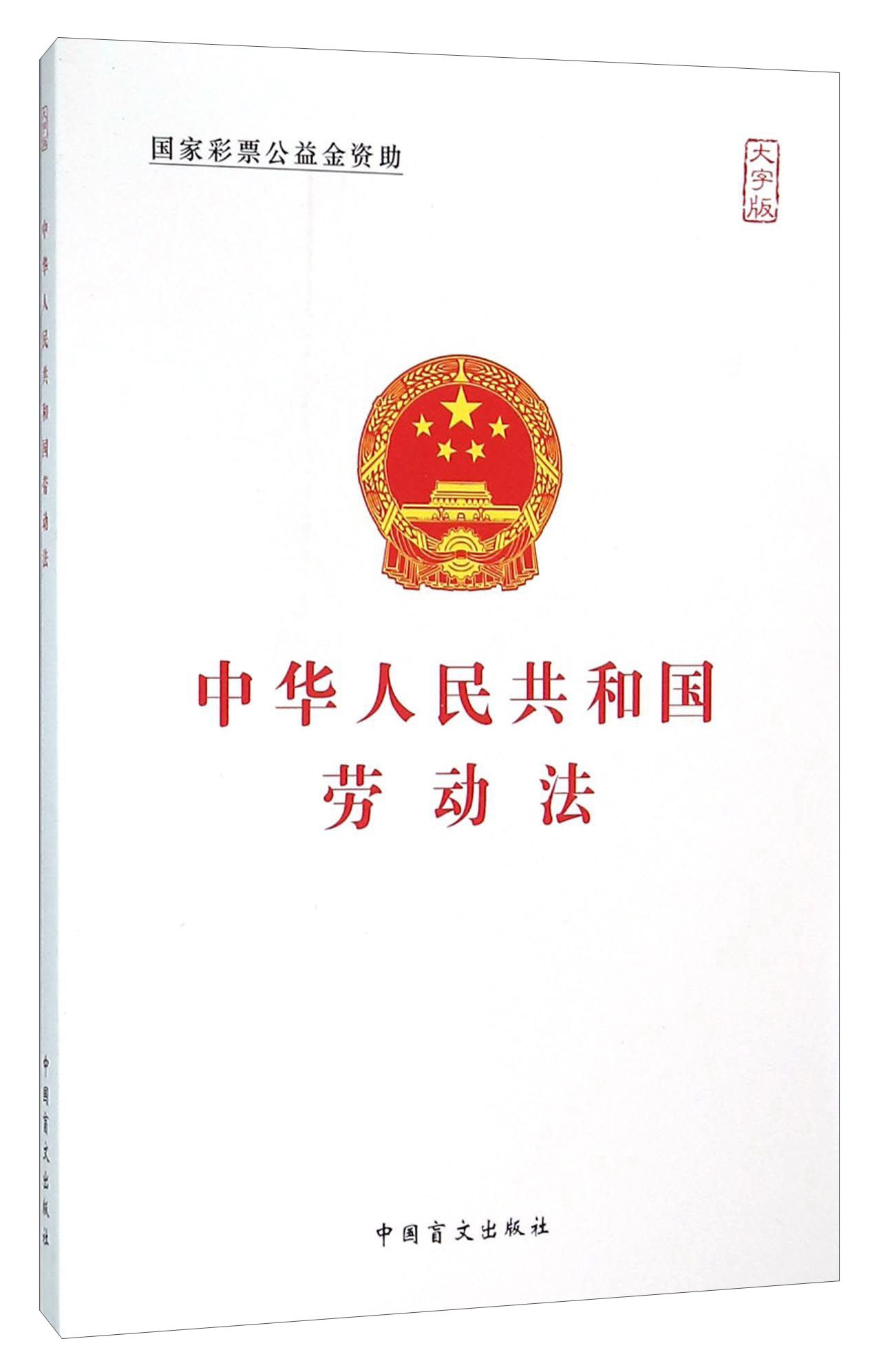
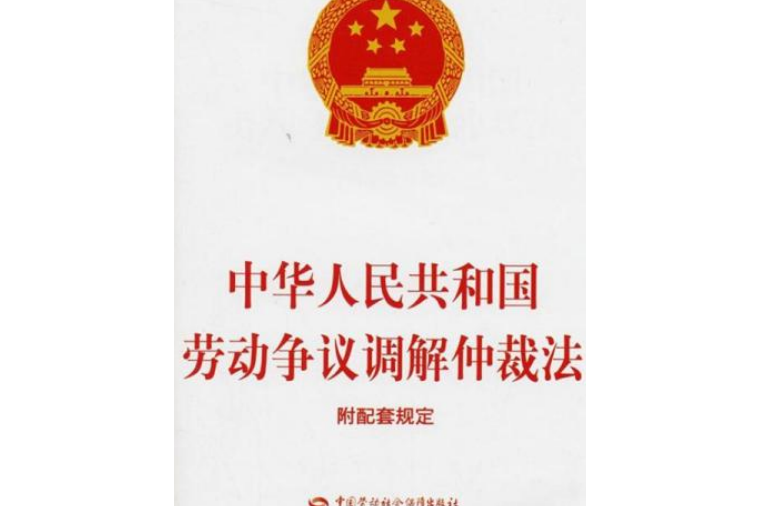
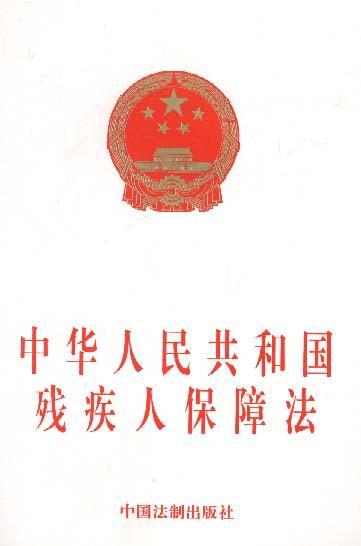
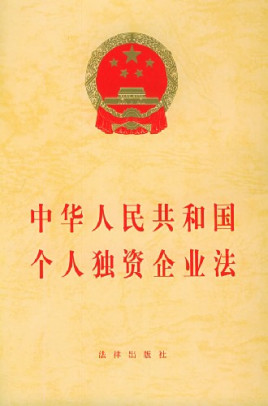
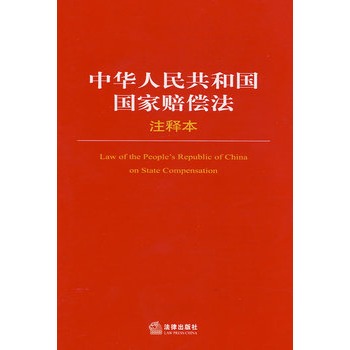
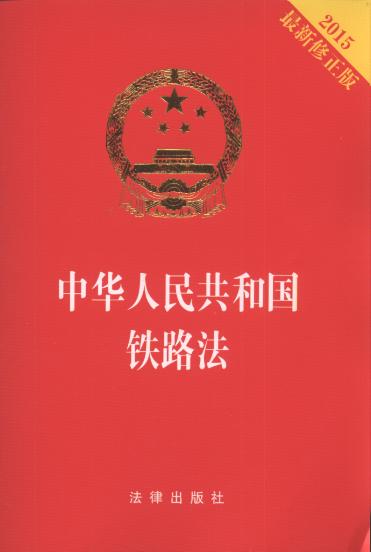
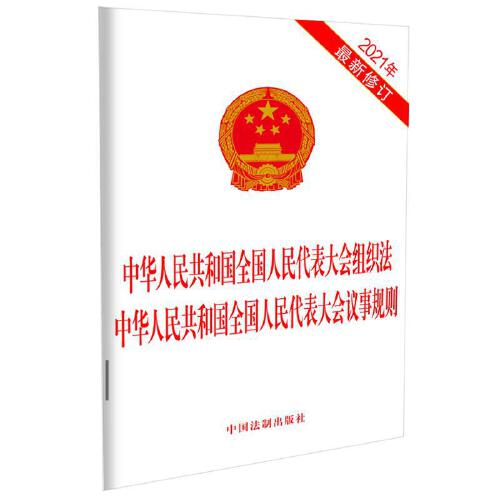


发表评论 取消回复